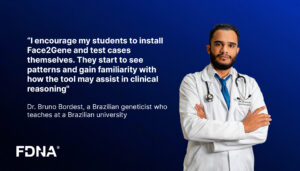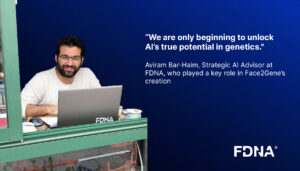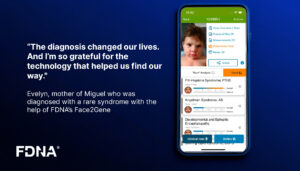February 28th 2022
Local 12
“FDNA’s Face2Gene app, combines artificial intelligence and unique technology to detect rare diseases. FDNA’s database contains thousands of patients’ pictures, and the technology can identify up to 5,000 rare diseases. “It allows clinicians to think and consider diagnoses that we would not naturally consider, for example, because a condition is so rare that even a clinical geneticist like me has never seen a patient with it,” says Dr. Gripp”
The article describes that up to 30 million Americans living with rare diseases struggle to get accurate diagnoses. FDNA aims to address this challenge with its innovative technology, Face2Gene. This AI-driven tool uses advanced facial recognition to analyze facial features and identify genetic anomalies. By comparing patient photos to a vast database of known conditions, Face2Gene provides quick and precise diagnostic suggestions. FDNA’s technology significantly improves the diagnostic process for those living with rare diseases, leading to earlier and more accurate diagnoses. This innovation highlights the transformative potential of AI in healthcare, particularly for rare disease detection.


